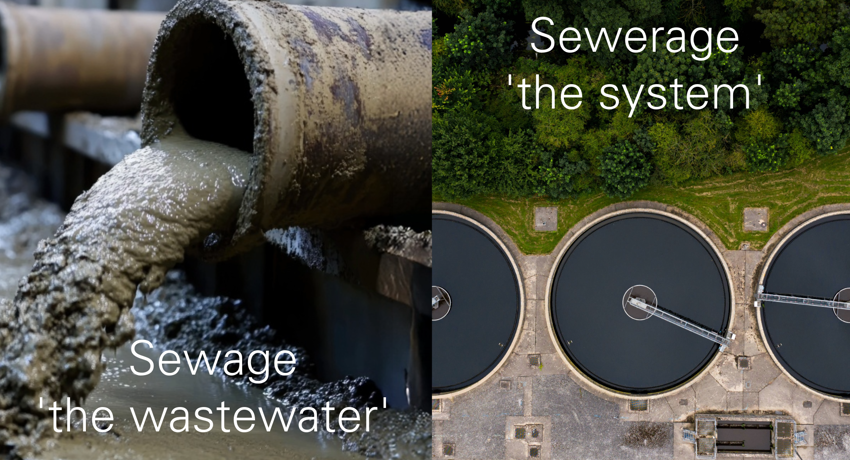Sewage vs Sewerage – What’s the Difference?

Sewage vs Sewerage – What’s the Difference?
Date: 30-May-2025
They sound similar, but they mean very different things—sewage and sewerage are not interchangeable. Understanding the difference can help us better talk about water, waste, and how our cities (and even small communities) stay clean and healthy.
Here’s a simple breakdown to clear things up
The Key Difference
Sewage is the wastewater itself – the stuff that goes down your drains, toilets, showers, and sinks.
Sewerage is the system – the network of pipes, pumps, and treatment plants that carry and treat that wastewater.
Think of it Like This
Imagine a city road system:
The sewerage is the road network.
The sewage is the traffic flowing through it.
Why It Matters in Australia
Understanding the difference isn’t just about using the right words—it helps us understand how Australia manages waste and protects our environment.
Better Infrastructure Planning
Governments and councils plan, build, and upgrade sewerage systems to keep up with growing populations and changing needs.
Protecting the Environment
Untreated sewage can pollute rivers, beaches, and groundwater. That’s why proper treatment and modern systems matter.
Public Health
A well-maintained sewerage system helps stop the spread of disease by safely moving and treating sewage.
Smarter Sustainability
Australia’s dry climate means sewage is often treated and reused—for agriculture, industry, or even replenishing groundwater—reducing demand on fresh water.
Urban vs Rural in Australia
Cities like Sydney, Brisbane, and Melbourne have massive sewerage networks handling billions of litres of sewage every day.
Rural areas often use septic tanks or small treatment units, as large sewerage networks aren’t always practical.
Older systems in some cities combine stormwater and sewage, which can cause overflows during heavy rain—a problem many councils are actively fixing.
Word Play: Same Sound, Different Role
Here are some easy comparisons to help remember the difference:
Mail vs Mailbox
Mail is what you send. Mailbox is where it goes.
Power vs Powerlines
Power is the electricity. Powerlines carry it.
Sewage vs Sewerage
Sewage is the waste. Sewerage is the system that handles it.
It might not be the most glamorous topic—but knowing the difference between sewage and sewerage helps us all:
*Talk more clearly
*Understand how things work behind the scenes
*Advocate for better infrastructure and smarter water use
After all, what we flush away still matters!
Ask us about a water system Find a Distributor Back to articles